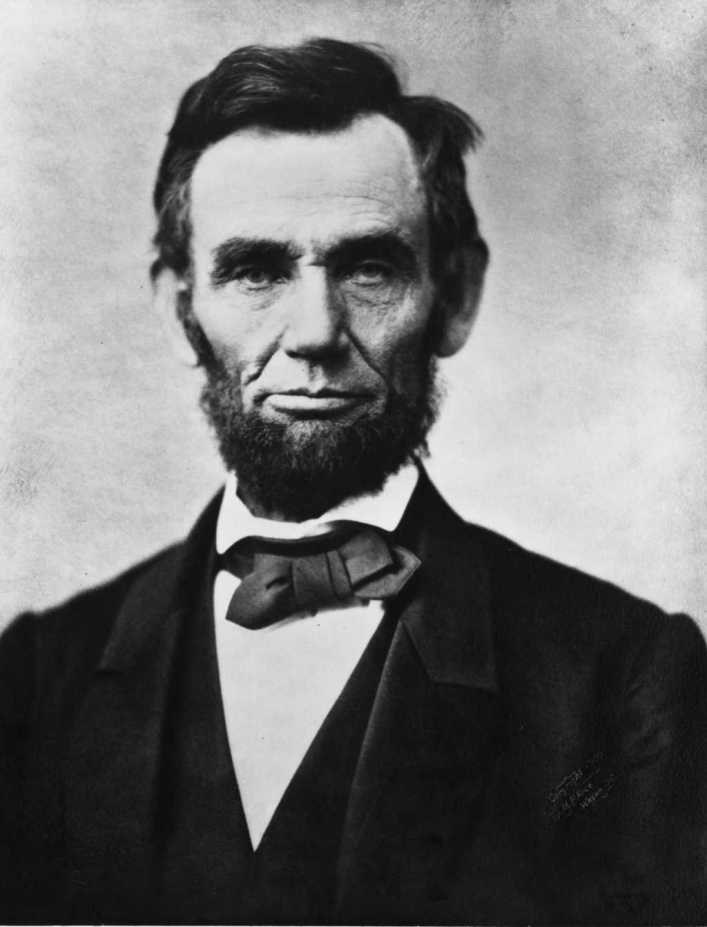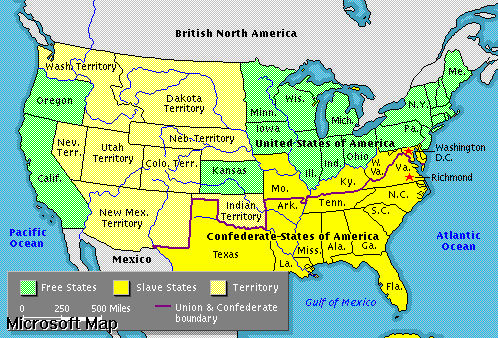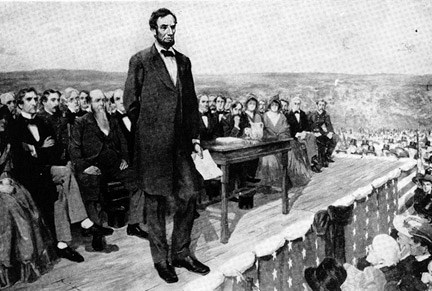 |
| Abraham Lincoln (http://bullrunnings.files.wordpress.com/2010/02/abraham_lincoln1.jpg) |
"A hero is an ordinary individual who finds the strength to persevere and endure in spite of overwhelming obstacles.” (Hero). Today, there are so many different interpretations and viewpoints that almost anyone can be a hero. In movies, we see people with unnatural superpowers as heroes. In books, heroes are the people that save the day and then you live happily ever after together. In our dreams, heroes are the people you fall in love with, the one that makes you feel complete. However, in reality, what is a hero? True heroes act without having the intention of personal gain. Abraham Lincoln is known as our 16th president, our leader during the Civil War, and the “Great Emancipator”. But even more so, he resembles the true image of a hero. Not only did he inspire and change the way people thought, but even when his ideas were unpopular, he followed his beliefs and was dedicated and committed to his goals.
Misery can only begin to describe Abraham Lincoln’s childhood. Born on a farm in Kentucky on February 12, 1809, he didn’t have much of a future in store for him. His father, Thomas Hanks, expected him to be a farmer for the rest of his life. He rarely attended school, and even when he did, little to no school supplies was available. Lincoln had to self educate himself with the few books he could borrow and eventually left his father’s roof, setting out to pursue his lifelong dream. With no money, no house, and no plan for the future, his life became very rough. Fortunately, he soon befriended many people whom he could trust, and through them, he learned the ways of law. He began to run for several political offices, both at the state and national level, many of which he lost. However, giving up never crossed his mind; he persevered and eventually achieved success.
 |
| United States during the Civil War (http://intranet.library.arizona.edu/users/arawan/graphics/usmap.gif) |
Regardless of the criticism he might have received, Abraham Lincoln always stood true in his beliefs and he always took action. In the beginning of year 1854, Stephen A. Douglas, a competitor of Lincoln, introduced a new bill named the Kansa-Nebraska Act. This bill allowed settlers in new areas admitted into the United States to decide if that area would be slave or slave-free by “Popular Sovereignty”. Lincoln, on the other hand, despised slavery and he wanted to persuade everyone that it was evil. “Angered over the possible spread of slavery, Lincoln ran for his state's other Senate seat in 1855, and lost” (UXL Biographies). Though he lost the election, he did speak out about for what he believed in. He had the courage to try to make a difference and he became the voice for the people who didn’t speak for themselves. Lincoln understood the harsh life of a slave and he could feel the pain they had to experience every day. Although he knew the criticism and consequences he would receive for trying to abolish slavery, he wanted to help those less fortunate, to change their lives for the better. As the controversy over slavery continued to grow, a new opportunity in Lincoln’s political career began to emerge. As he ran for the senate seat, he had to face a prominent competitor, Stephen A. Douglas. Lincoln made a strong impression during a series of seven debates, each man defending his viewpoint, criticizing the other, and exploiting his flaws. In a now famous speech, Lincoln said, "A house divided against itself cannot stand. I believe this government cannot endure, permanently half slave and half free. I do not expect the Union to be dissolved—I do not expect the house to fall—but I do expect it will cease to be divided. It will become all one thing, or all the other” (Holzer). Lincoln wanted to unite the states into either one slave-free country or one slave country. He believed the United States couldn’t prosper or advance properly if it was a house divided. Though Douglas constantly criticized Lincoln as a “dangerous radical who favored racial equality” (Holzer), Lincoln always fought on. He knew what he believed in was right and he did everything in his power to be a good leader. Lincoln might have taken the route that was the more difficult one, but he remained true to the courage of his convictions.
Throughout Lincoln’s whole entire life, he had to overcome tough obstacles and do the impossible. No one had faith in him, but not once did he give up, always dedicated and committed to his goals. Lincoln endured a harsh childhood, with his father forcing him to become a farmer to make his living and education always a last priority. Lincoln didn’t want to be a mere farmer, he wanted to be different, go further with his life. With the lack of formal education he received, that dream seemed as though it could never come true; however, “Lincoln also developed a passion for reading and self-improvement and through his reading he became self-educated” (Lincoln). He found ways to receive the education he wanted without attending school, proving he had the dedication he put towards everything he did. As a young boy, he didn’t know he would become a famous politician; he only wanted to learn to have a better future. Even though he had to face many obstacles, he persevered and was committed to turning his life around. He didn’t want people to make decisions for him; he could make his own choices and guide his own life. As Lincoln’s life went on, it didn’t get any easier for him. Even when he was president, he still had many challenges to endure, especially the Civil War. “The Union army fared poorly, and Lincoln could not find a general to properly lead it. Members of Lincoln's cabinet ignored him and tried to make their own decisions and policy. Many people thought he acted like a dictator when he limited the freedom of the press and allowed the army to arrest suspected traitors without proof” (UXL Biographies). Even as the leader of our country, he was not favored. His most trusting and loyal followers ignored him and had no faith in him. Surprisingly, Lincoln never gave up. He was committed to reuniting the states and making everyone happy. It shows true dedication when one can put all selfish thoughts behind them in order to make the lives of everyone else better. Without Lincoln’s dedication and commitment he put into his work, not only would our country be different, but our lives would too.
 |
| Abraham Lincoln speaking at Gettysburg, Pennsylva (http://grizzlymedia.files.wordpress.com/2007/11/gettysburg-address.jpg) |
In the beginning, Lincoln’s words and thoughts may have been ignored, but eventually, he didn’t fail to inspire and change the minds of many. As Lincoln’s success during the Civil War grew, some people began to think differently about Lincoln. On November 19, 1863, he delivered a very important speech in Gettysburg, Pennsylvania. “He was not the main speaker and many people at the time felt his short speech—just 272 words—was dull and did nothing to honor the occasion. People later realized that, through his clear and vivid language, he honored not only the dead but the very ideals on which the United States was founded” (UXL Biographies). At that time, Lincoln still wasn’t well liked and nobody really cared for him, but his short speech ended up touching the hearts of many. He talked about the foundations on which the United States was created and about those who sacrificed their lives for the greater good. He explained that we all have differences, but our similarities bring us together. In his famous speech, the Gettysburg Address, Lincoln says, “It is for us the living, rather, to be dedicated here to the unfinished work which they who fought here have thus far so nobly advanced. It is rather for us to be here dedicated to the great task remaining before us” (Gettysburg). He states that instead of having this war, the two halves should reunite as a whole. Everyone has worked so hard to get to where they were, and by fighting, they were just throwing it all away. He inspires others to follow his example and to take action for what they believe in. Also, he inspires everyone to speak out about what they believe is right and that they shouldn’t hide behind others anymore. To let them know, that they can make a difference if they just try. In the end, a country belongs to a whole group of people, not just one person. All it took was one person to put some effort into what he believed, and inspire the minds of everyone else.
Back then, Abraham Lincoln was just a poor boy, growing up on a farm with his future already planned for him. No one expected him to grow up and do anything great. But today, many years after his death, he is known as one of our nation’s greatest heroes. He did what no man dared to do, said what no man dared to say, and overcame obstacles that seemed nearly impossible. Despite all this, he succeeded and changed America forever. Lincoln inspires us to always work toward our dreams, ignore setbacks, and never give up. He showed us that it only takes one person to make a difference, even if the chances seem slim. Even though it has been over a century since Lincoln lived, we will always be reminded of his great achievements. In our hearts, minds, and souls, Abraham Lincoln has forever solidified his title of a hero.
Page created on 5/18/2010 12:00:00 AM
Last edited 5/18/2010 12:00:00 AM
Emancipation Proclamation http://www.archives.gov/exhibits/featured_documents/emancipation_proclamation/
